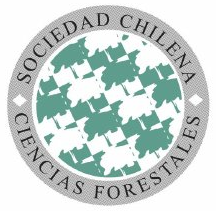Preservación de madera tratada con Zn y Mn y efectividad de tratamiento antilixiviante con bórax
Keywords:
zinc, borax, wood preservers, manganese, stakes graveyard, bórax, preservantes para madera, manganeso, cementerio de estacasAbstract
Continuando con el estudio del uso de una solución obtenida en un proceso de reciclado de baterías domésticas como preservante para madera, se estableció un primer cementerio de estacas basado en la norma EN 252, que evalúa la durabilidad adquirida por probetas de Pinus taeda L. Dicha solución es ácida, contiene 32 g l-1 de Zn y 15 g l-1 de Mn como sulfatos, libre de metales pesados; en ensayos de laboratorio ha demostrado propiedades funguicidas e insecticidas específi cos, a concentraciones menores a 3% en Zn (máxima concentración obtenida del reciclado). A las probetas tratadas con la mencionada solución por el método de célula llena, se les realizó un tratamiento posterior antilixiviante con bórax al 2%, por pincelado y por célula. Se comparó la durabilidad natural y la adquirida, con dicha solución (con o sin bórax), con arseniato de cobre cromatado (CCA) a dos retenciones. A 32 meses del inicio del ensayo, las concentraciones de Zn de 3% y mayores con el bórax aplicado por el método de célula llena son las más efectivas. Se analizaron además los agentes de deterioro de madera (insectos, hongos y bacterias) presentes en las probetas.
Abstract
As part of the study of the application of a solution obtained from a domestic batteries recycling process as a wood preservative, a field stakes test was established to assess the acquired durability in loblolly pine (Pinus taeda L.) specimens following the internationally accepted standard EN 252. This solution is acidic, containing 32 g l-1 Zn and 15 g l-1 of Mn as sulfates and free of heavy metals; in laboratory tests the solution proved to have specific fungicidal and insecticidal properties against organisms that degrade wood, at concentrations lower than 3% Zn (the highest concentration obtained from the recycling process). The specimens treated by the full cell method with the mentioned solution were afterwards treated with 2% in borax by the full cell method and by brushing in order to prevent leaching. Natural and acquired durability are compared using different concentrations of the studied solution as well as chromated copper arsenate (CCA) at two different retention levels. At 32 months, 3 % and higher concentrations of Zn and borax applied by full cell method showed to be the most effective. Main degrading agents (insects, fungi and bacteria) found in the specimens are also described.
Downloads
Downloads
Published
How to Cite
Issue
Section
License
Copyright (c) 2015 C. Ibáñez, C. Mantero, L. Silva, M. Rabinovich, R. Escudero, J. Franco

This work is licensed under a Creative Commons Attribution 4.0 International License.
Los autores/as conservarán sus derechos de autor y garantizarán a la revista el derecho de primera publicación de su obra, el cuál estará simultáneamente sujeto a la Licencia de Reconocimiento de Creative Commons CC-BY que permite a terceros compartir la obra siempre que se indique su autor y su primera publicación esta revista.
































